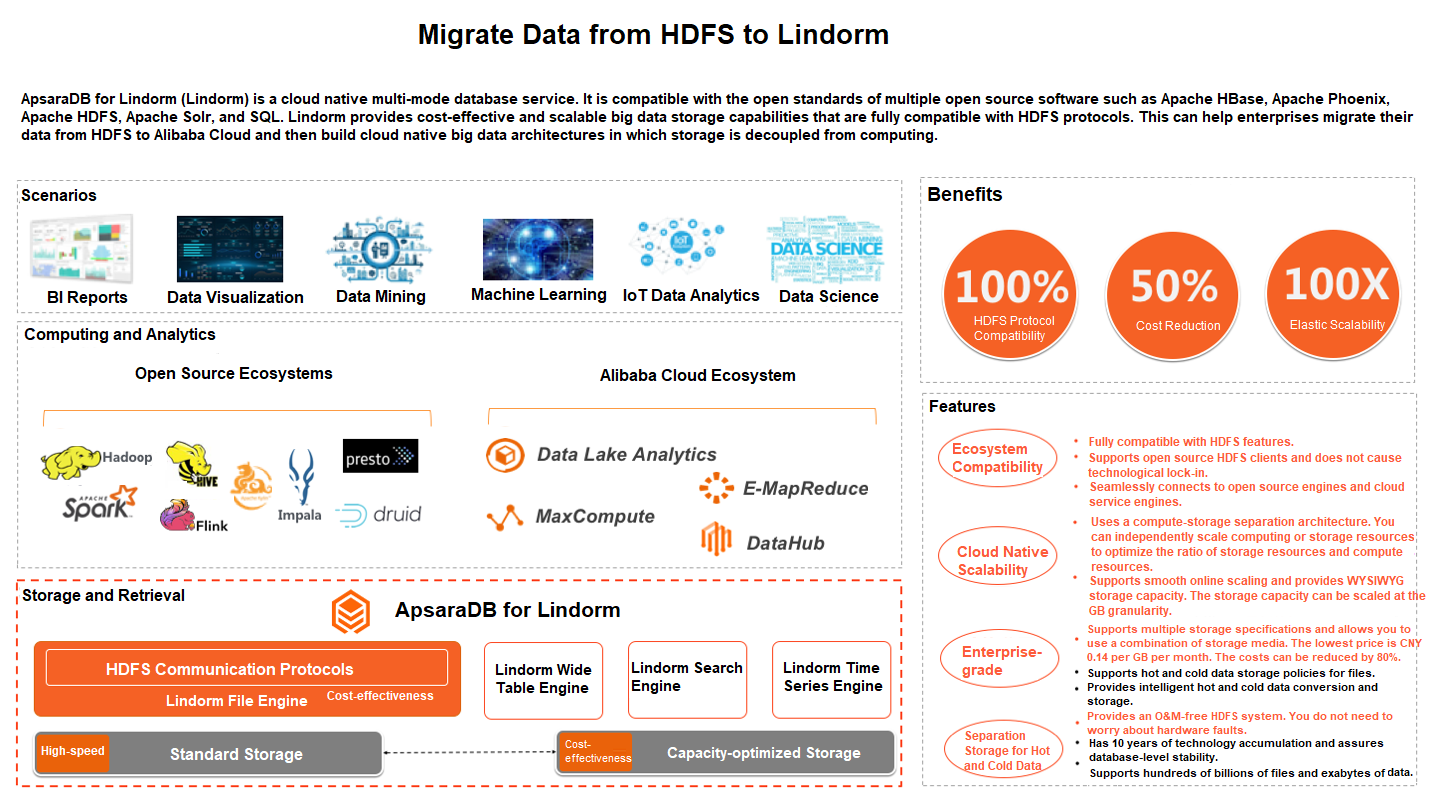The Lindorm file engine is a distributed file storage service for large amounts of unstructured data. It features elasticity and cost-effectiveness. The file engine is fully compatible with Hadoop Distributed File System (HDFS) protocols and provides superior user experience. You can seamlessly and smoothly migrate data from an HDFS cluster to Alibaba Cloud and build a cloud native compute-storage separation architecture. When you use Lindorm to migrate your data to the cloud, you do not need to modify your application code.
Solution overview

Benefits
The migration process is simple. The Lindorm file engine is fully compatible with HDFS protocols. You do not need to modify your application.
The cost is low. The total cost of ownership (TCO) for using Lindorm can be less than 50% of the cost for a self-managed HDFS cluster.
Storage and computing resources can be elastically scaled. Storage is decoupled from computing. You can separately scale storage resources and computing resources. This improves the scalability of the resources and helps build a cloud native architecture.
Lindorm provides stable and maintenance-free services. It has an expert team that has accumulated expert tech-knowledge over a ten-year period.
Procedure
Activate the file engine for your Lindorm instance.
Migrate the data in your self-managed HDFS cluster to your Lindorm instance.
Change the service address of your upper-layer computing application such as Hadoop, Hive, or Spark from the HDFS server address to the file engine endpoint of your Lindorm instance.
Deactivate or scale down your self-managed HDFS cluster. For example, you can use the cluster scaling feature to change the local disk nodes in the cluster to compute-optimized ECS instances. This way, the architecture can be upgraded to a compute-storage separation architecture.
Solution consultation
If you have questions, you can ask an expert. For more information, see Expert support.